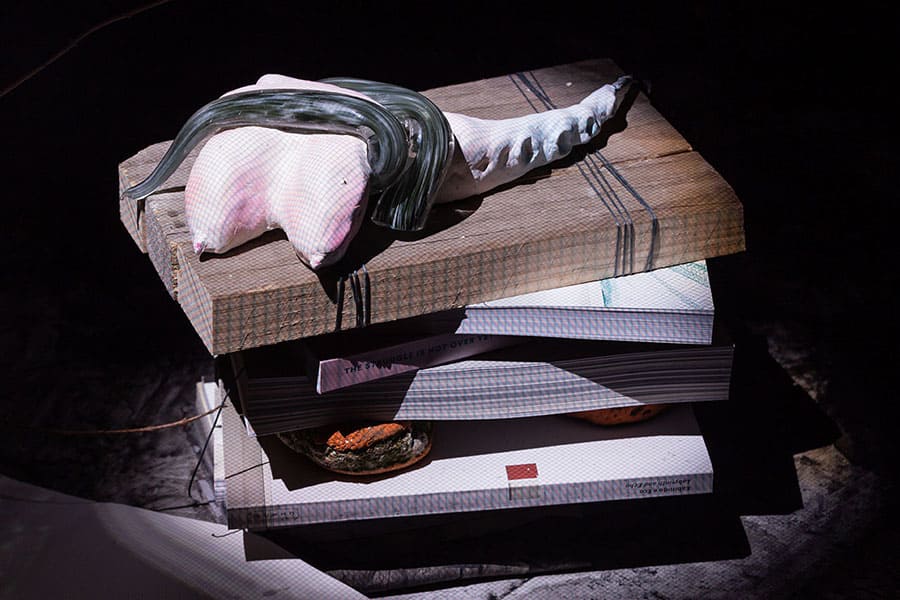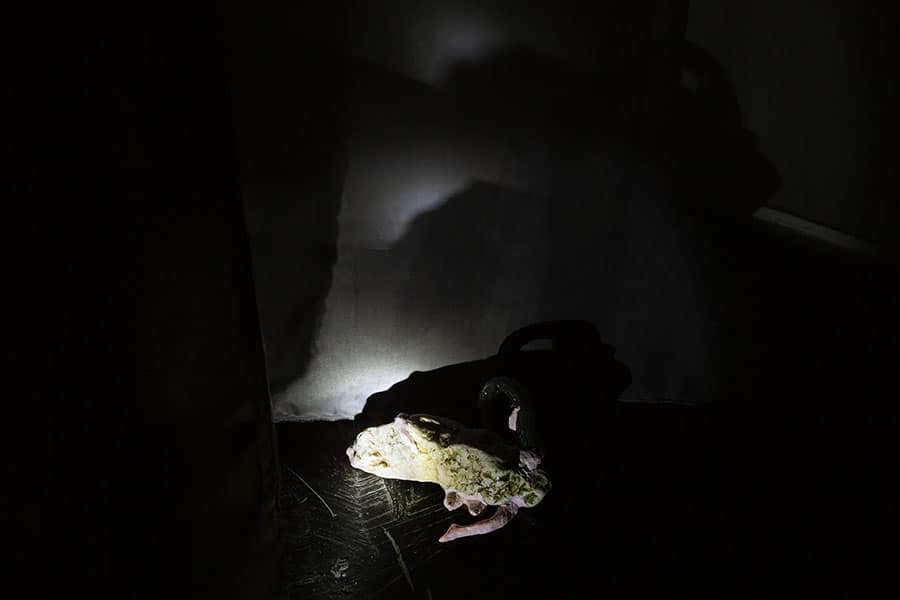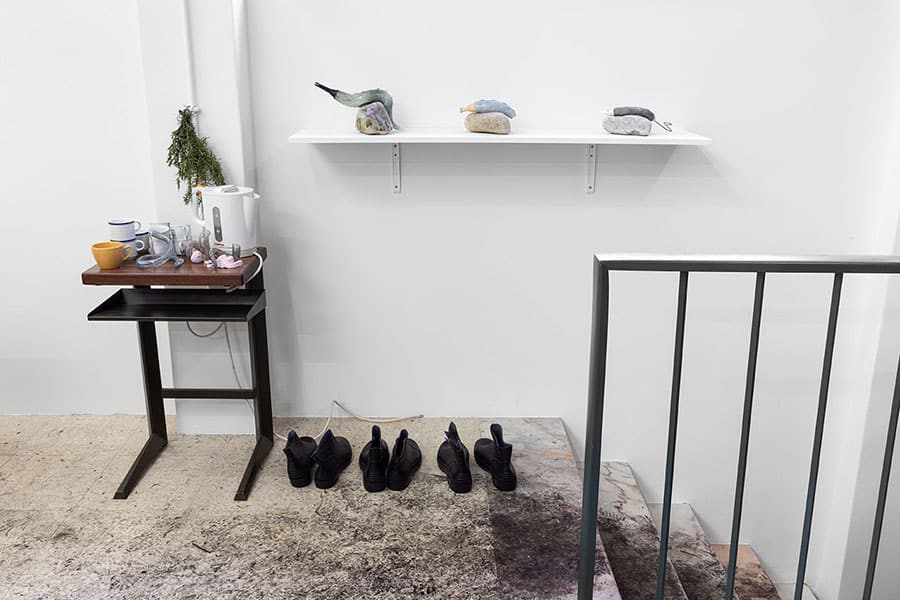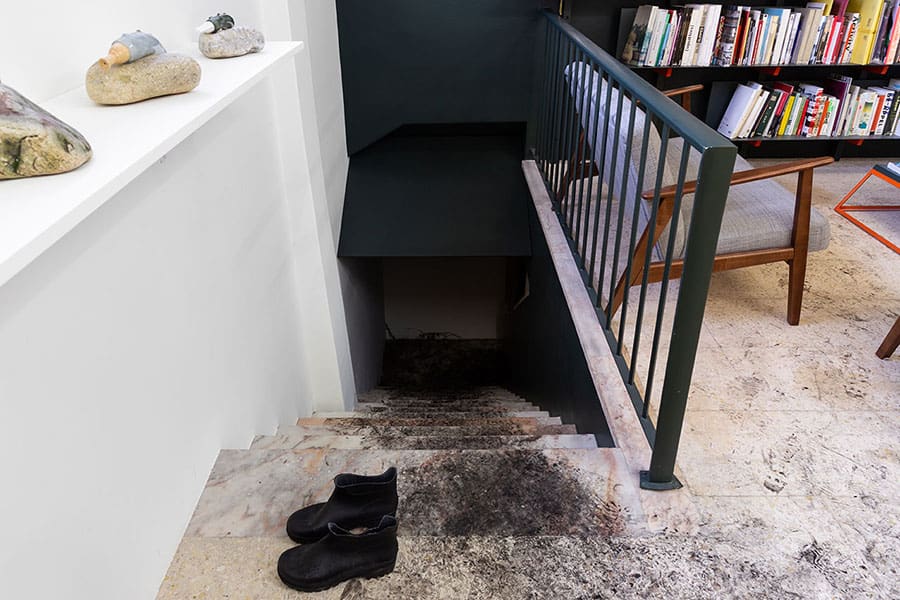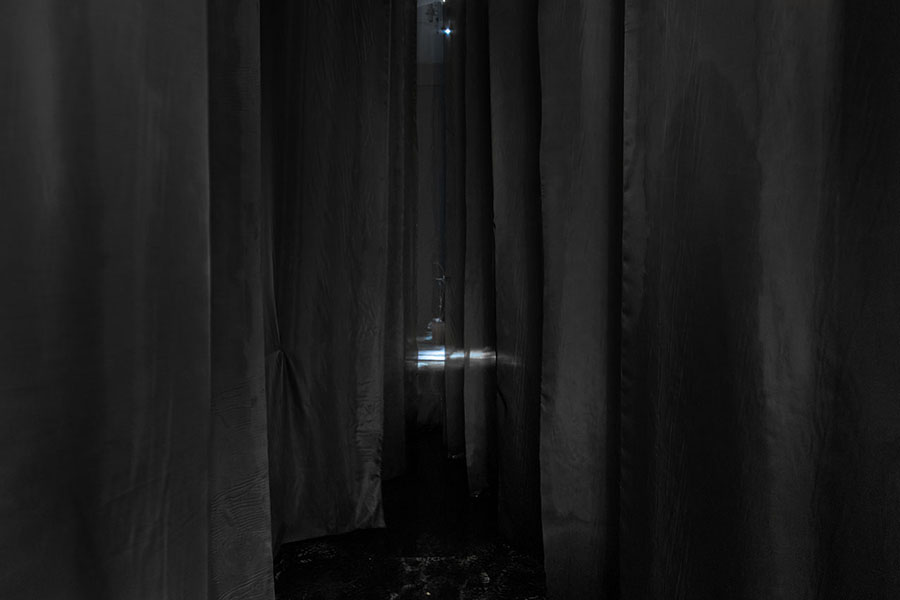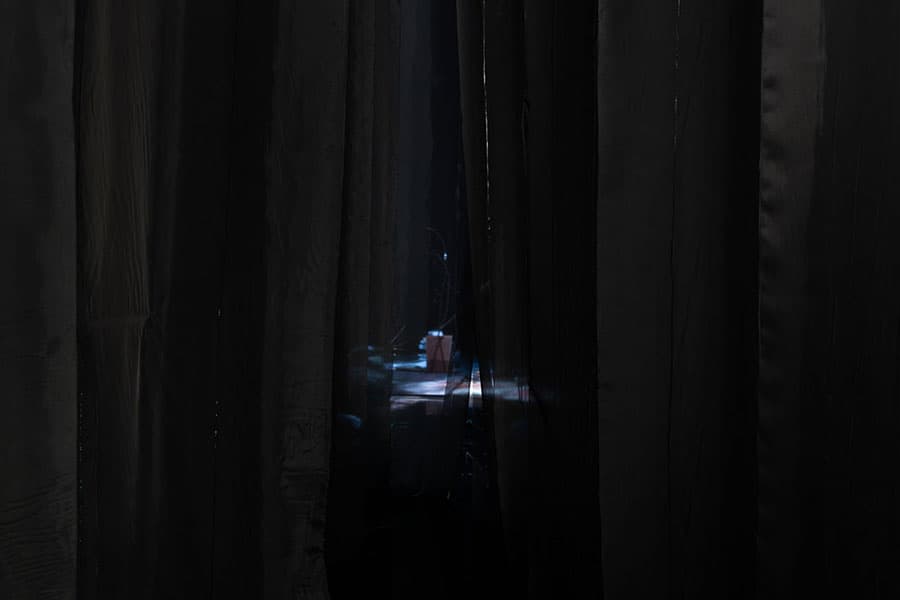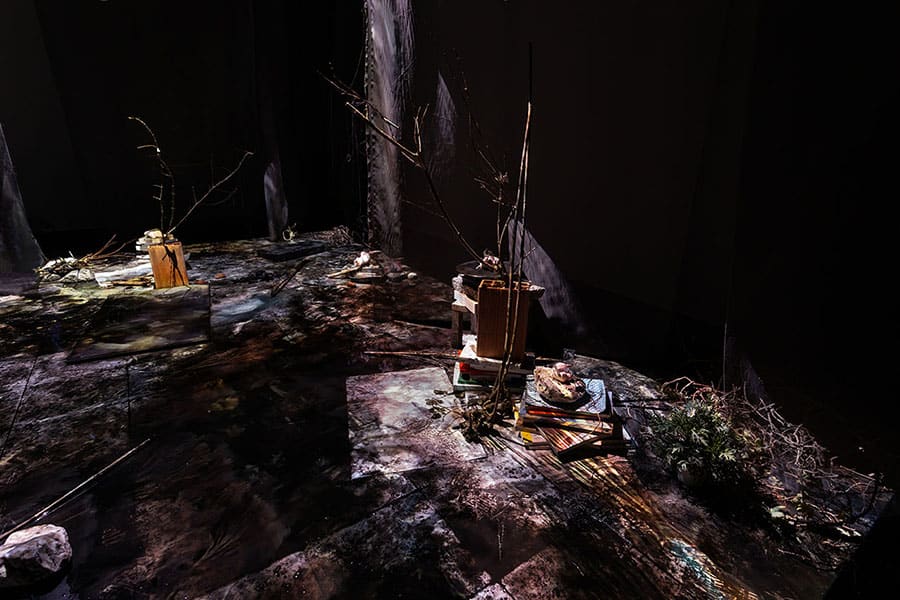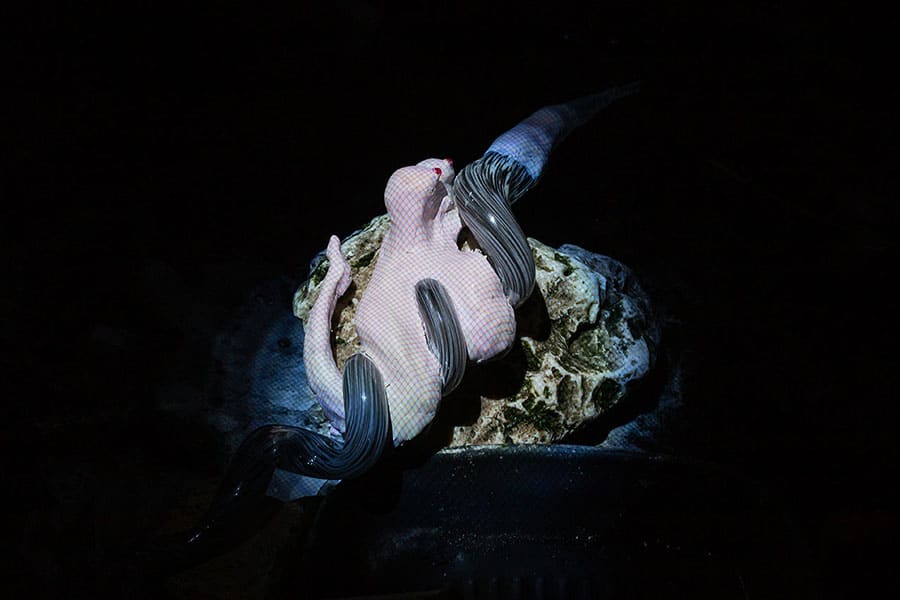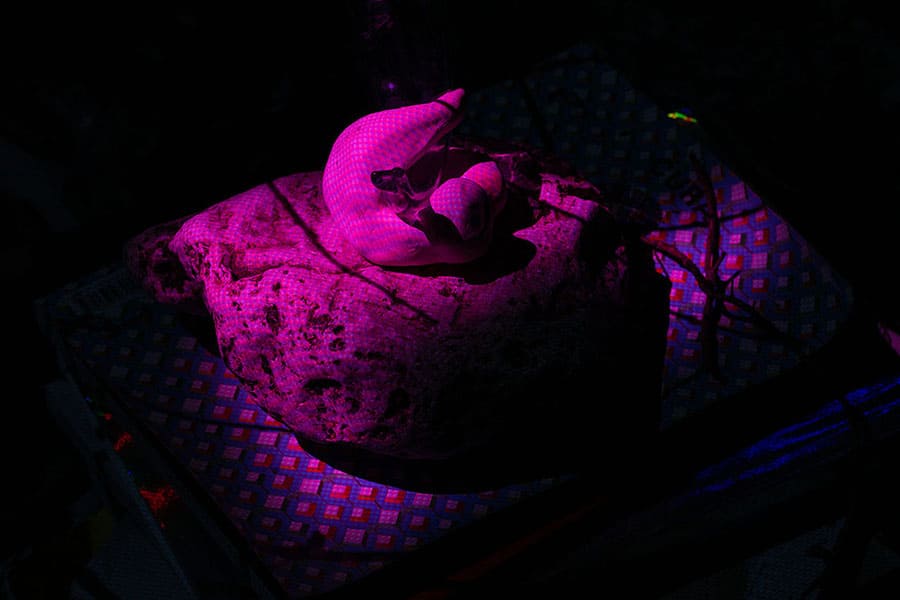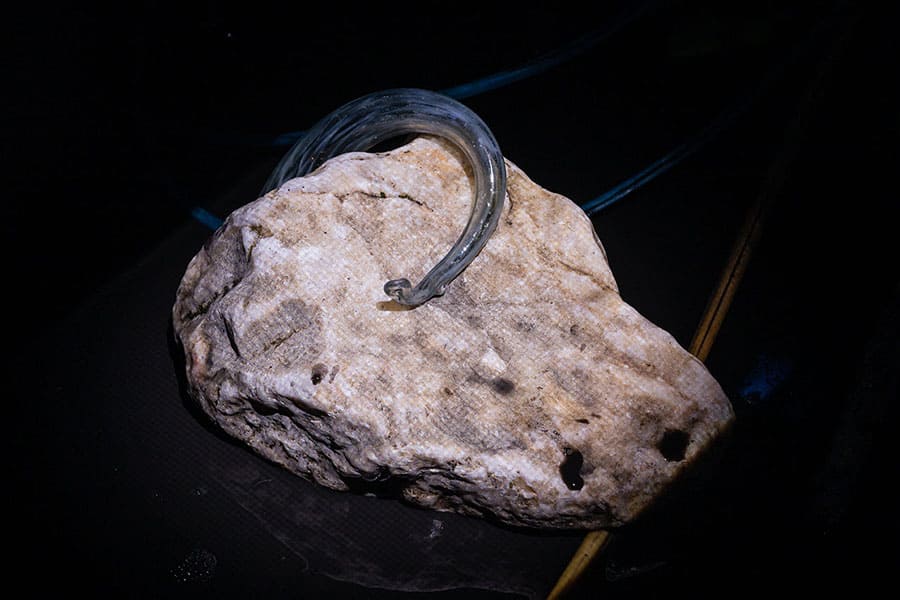Melting into one another, ho hot chaud it’s heating dip – Laure Prouvost
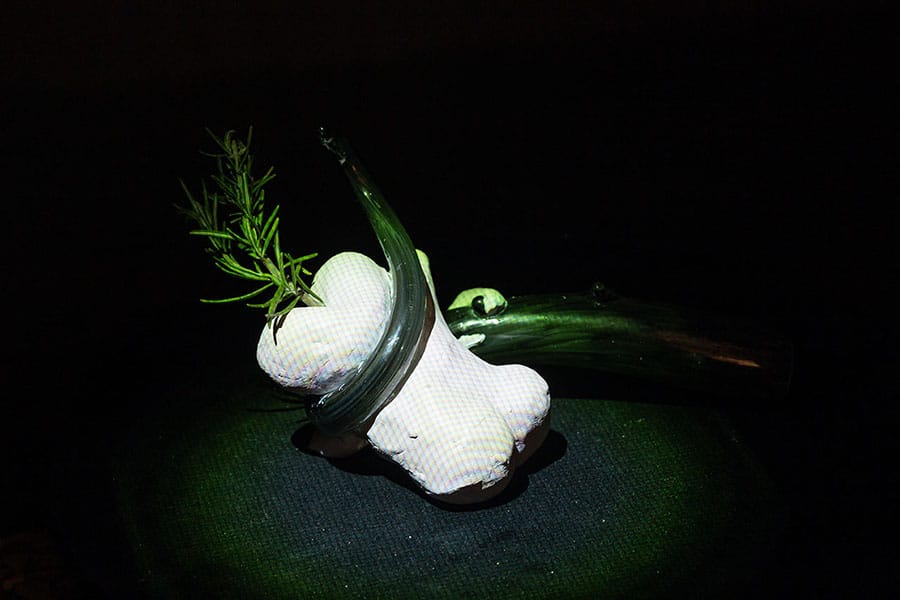 Melting into one another ho hot chaud it heating dip, 2020.
Melting into one another ho hot chaud it heating dip, 2020.
Installation, curtains, blown glass, clay, squid ink, water, branches, stones, films.
Installation view at Kunsthalle Lissabon (detail). Photo Bruno Lopes.
Ready to plunge you underground, the exhibition Laure Prouvost had anticipated in Kunsthalle Lissabon was another one of her fantastical underwater worlds. Well known for her transformations of space filled with draping material and tentacular elements, in “Melting into one another, ho hot chaud it’s heating dip“ exhibition and immersive installation was interjected with a dose of reality as the gallery space shut its doors due to health concerns of the COVID19 pandemic. Unable to attend the show in person, the Adrastus Collection did manage to get a glimpse of what the show was like, thanks to the participation of her representative gallery carlier | gebauer, Madrid in support of this initiative.
The French artist has been creating surreal environments through many types of mediums and now the Adrastus Collection has been offered a rare sighting into her surrealist mind, where dreams and reality merge through the use of natural elements.

